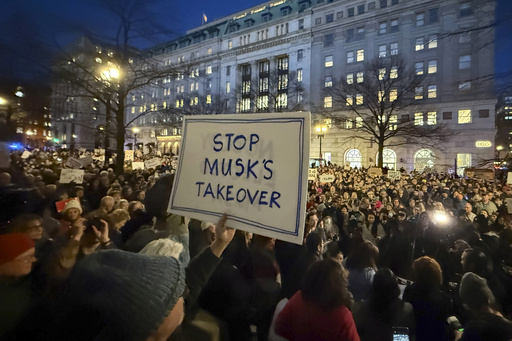The Trump administration has touted a major cost-cutting initiative, boasting about the cancellation of nearly 2,300 federal contracts. However, their own data reveals that approximately 40% of these terminations won’t result in any financial savings. The Department of Government Efficiency (DOGE), overseen by advisor Elon Musk, recently disclosed this information through their “Wall of Receipts” platform.
Analyzing the details from DOGE’s report, it becomes evident that 794 of the canceled contracts were not expected to save money. This is often because the funds tied to these contracts have already been allocated and sometimes used, thus binding the government to its spending commitments. Charles Tiefer, an expert on government contracting law, illustrated this point, comparing the situation to trying to reclaim spent ammunition. He argued that such contract cancellations without prior diligence fail to achieve the intended financial efficiency.
In defending their actions, a senior administration official, who remained unnamed due to the sensitive nature of the information, conveyed that the initiative still aimed to eliminate what they called “bureaucratic baggage.” Despite this, no tangible fiscal savings materialized from the cancellations. The administration continues to present this initiative as part of their broader strategy to combat government waste. They claim overall cost savings of $65 billion from measures such as cutting employee positions and the sale of assets, though third-party verification of this figure is absent.
Among the contracts canceled are various agreements ranging from academic research to periodic subscriptions, including those for prominent media outlets like The Associated Press. Other contracts, despite also not yielding savings, included those for software already in use and internships already concluded.
Further examples highlight how committed funds are leading to non-savings. HUD contracted over half a million dollars in furniture purchases to be fulfilled by year-end, while USAID’s carpet cleaning contract, tied to a Native American-owned company, had fully obligated payments. Another instance involved a $249,600 contract meant to facilitate the Department of Transportation’s transitions between administrations, which couldn’t be withdrawn.
Tiefer criticized DOGE’s aggressive approach, suggesting it may impair agency functionality. Instead, he recommended collaborating with agency representatives and oversight bodies to achieve real savings. Meanwhile, claims from DOGE estimate a $9.6 billion saving from these alleged measures, which experts deem overrated.
Some disbanded agreements included those designed to update government operations. Among these was a $13.6 million deal with Deloitte Consulting for organizational revamps at a key CDC center, crucial during the COVID-19 health crisis.
The contrasting priorities between modernization and cost-cutting are clear, raising questions about DOGE’s strategic decisions.




